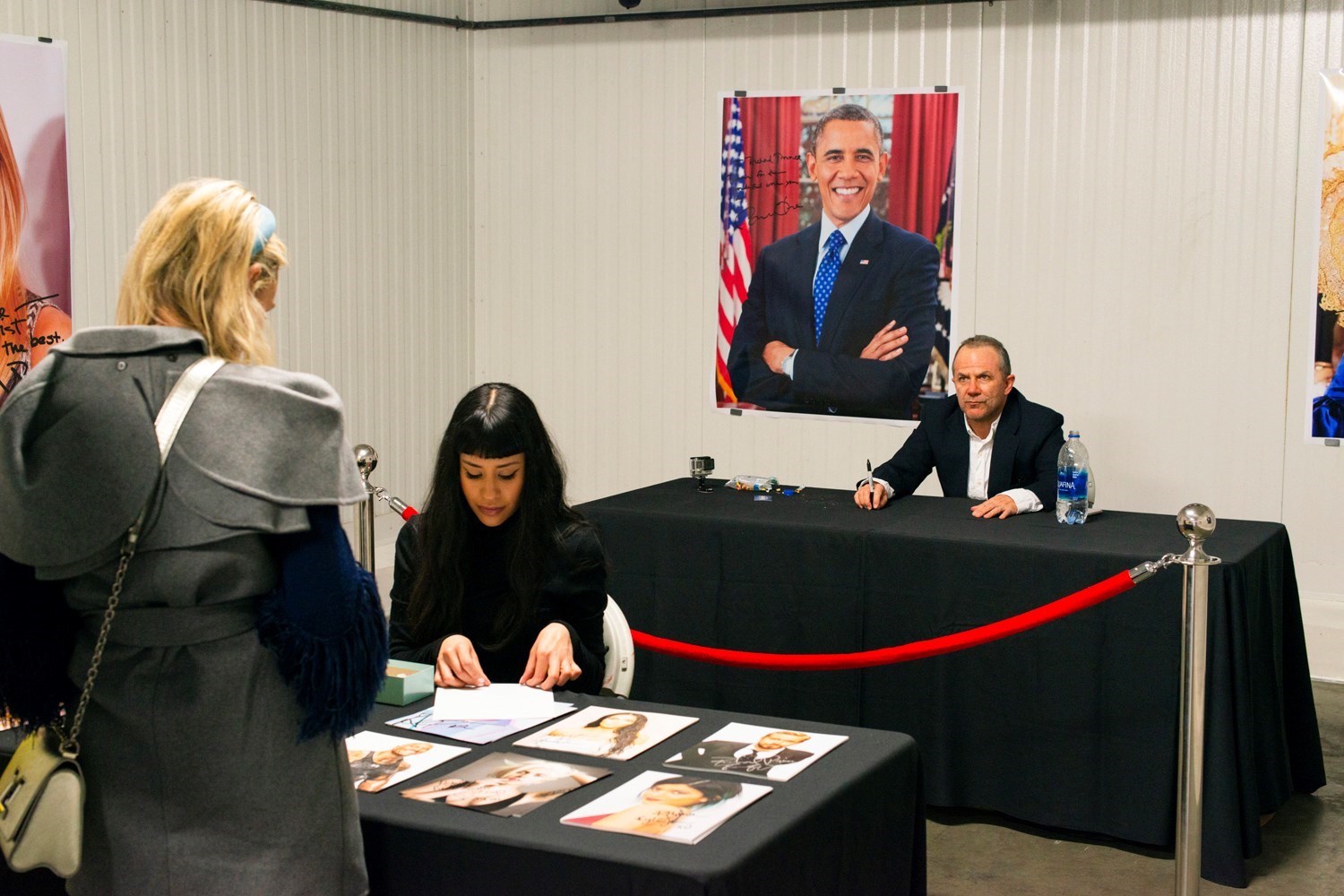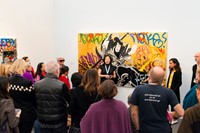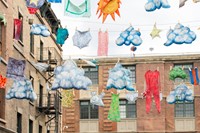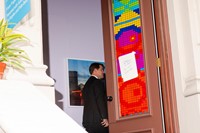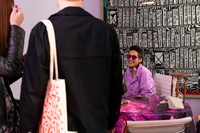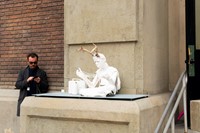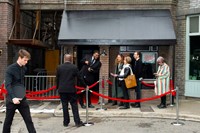Dodging the puddles, as the rain pelted down creating an air of foreboding, we made for a row of storage units called The Stalls at Skylight ROW DTLA. In the first space we entered there hung large format unframed photographs of Kanye West, Kim Kardashian, Justin Bieber, Beyoncé, Kylie Jenner, Ivanka Trump, headshots – they included autographs. Moving through to the back, behind a red roped off area, sat the artist Richard Prince. Dressed in a suit his grimace was accentuated by the photograph of a smiling Barack Obama mounted above. “How are you today?” asked photographer Nathanael Turner. “Cold,” Prince snarled while signing the back of a smaller print of Kardashian’s image.
American author Eve Babitz, who chronicled the potency of the characters that make up Hollywood, wrote that Mary “wouldn’t leave LA if the whole place tipped over into the ocean… And indeed, she only left Los Angeles on urgent business. She was too tough and too fragile for anyplace else.” Home to the film industry, the city now plays host to a growing community of creatives who have decamped from New York and London. It’s an unruly proposition. When you visit New York for the first time you know its streets, signs and symbols from its role as backdrop to films and television, LA cannot be explained in this way – which is ironic as many bastions of Western contemporary popular culture are constructed here. Paradoxically, it is the energy that defines this sprawling city.
When I heard Frieze LA was going to be held at the legendary Paramount Studios I suggested that photographer Nathanael Turner and I go to make our social observations. Art fairs are social spaces, offering proximity to art; I was expecting a milieu of art professionals, collectors, celebrities and cheesy hangers on. However the complex Angeleno’s – much like the art market itself – shan’t be so easily judged. I was immediately struck by a professionalism and sense of community. Groups huddled around works while they scrutinised, gallerists scrolled through iPads giving further examples and context. I am not sure if it was the rain (a very present factor) or the political situation (looming large), but to me there was a poignancy that hung in the air. We arrived at 1:30pm and many gallerists were sat at tables in the centre of their booths eating. There is something ever so simple and basic about having to feed yourself, which set against a backdrop of art works that hold such majesty, are so cerebral; holds an air of preposterousness. Here the sales people, the vehicles for the work to be understood by new perspective owners are having a quick working lunch.
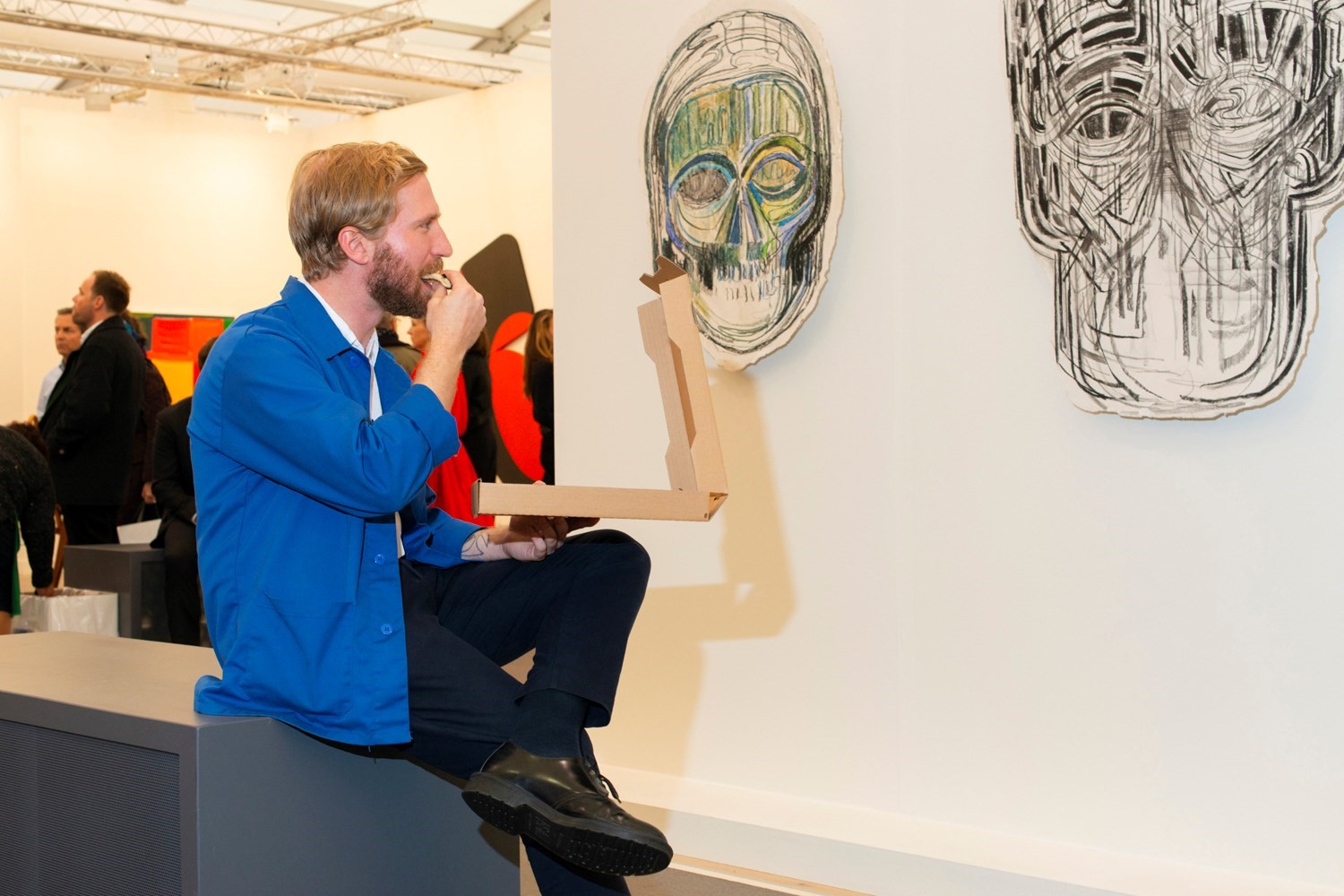
An intimate event, the fair was much smaller than its New York or London siblings who each have nearly 200 galleries. Frieze LA had only 70. All the big hitters were there, though – White Cube, Marian Goodman and David Zwirner for example – but the works they had selected to bring didn’t feel quite as ‘commercial’ as, say, Art Basel Miami Beach. This is dictated by the market and is selected based on the tastes of the collectors they think will attend. Appearing like all other international art fairs, albeit set in a sound studio in Paramount Studios, the booth spaces were carved up based on the price paid. However local galleries, such as Blum & Poe, were placed at the threshold, welcoming you in – they hummed with a communal buzz.
The project spaces were in a different location – on the film set of the Hollywood version of New York City. Here people walked through the storied sets of so many films, where some of our most beloved characters have danced, sobbed and kissed. Their myths kiboshed immediately it was the architectural façades that captured my fascination here, much more than the art placed within. Paramount Studio Tours continued through the Frieze debris, tourist being lead around, their eyes drawn to the surroundings being pointed out by a tour guide.
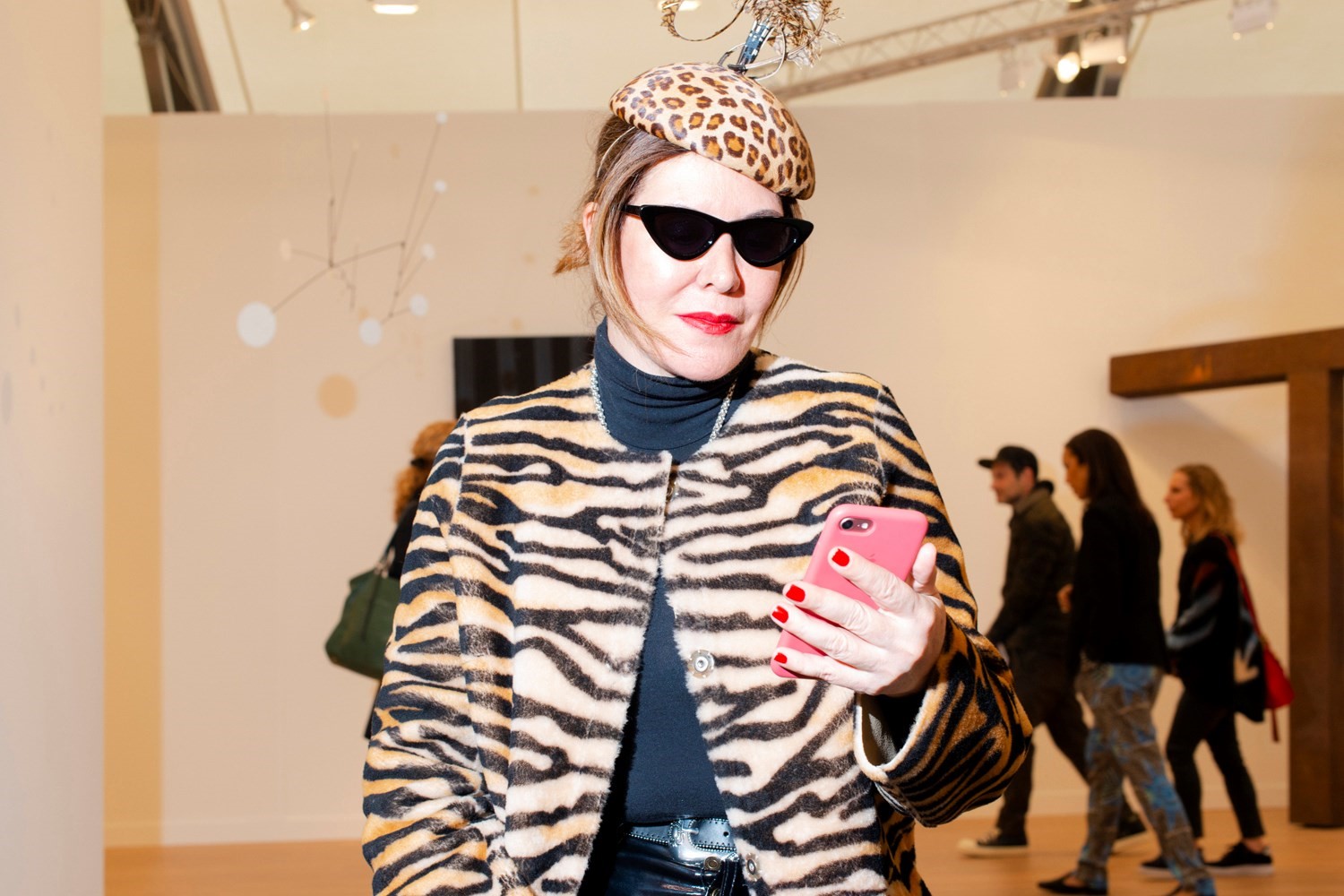
Architecture was a feature in the subsidiary offerings throughout the city, too. Art fair Felix was held at the Hollywood Roosevelt Hotel, which stands proudly on the Hollywood Boulevard where tourists squat to be pictured next to their Walk of Fame star of choice. Each of the 38 galleries had a room or a suite in the hotel to present the artists they represent. London favourites Soft Opening and Marlborough Contemporary were there, alongside Bridget Donahue from New York. The domesticity of these interiors starkly different from the booth inner, I wondered if this aided collectors to imagine pieces within their homes. Older couples, which I envisage as entertainment royalty, got close to pieces, and each other, in these pocket spaces. Another fair Spring/Break Art Fair LA, where we had encountered Richard Prince, was set within shutter front storage units. There showed a medley of emerging galleries. Standouts, obviously the Prince meeting, and tucked right at the back of another Hilde Gallery was showing artist Lani Trock who made Nathanael and I tea as we got comfortable in a structure she had built called ‘National Peace Service’ which resembled a den. A much-needed warm and soft respite from the rain, we talked about learning to take time.
I wasn’t too sure what to expect when I proposed this activity. Somebody asked me if these observations were going to be negative, I think I certainly imagined them to be satirical. But as ever I was fiercely reminded preconceived judgments are rather useless, the superficiality associated with Los Angeles is not a particularly straightforward proposition.
Just shy of a month after this article went live the head of press for Spring/Break Art Fair got in touch with me. “I have a major edit,” she wrote. “That actually was not Richard Prince, but a performance piece by the artist Jonathan Paul. He worked with a Hollywood makeup artist to achieve Richard’s likeness... He adopted Richard’s vocal register and perfected his signature.” Curated by Che Morales and Andrew Cole, I was duped – which I imagine was their intention.
